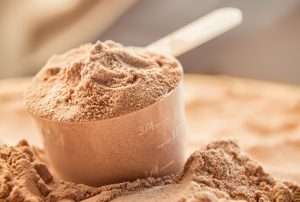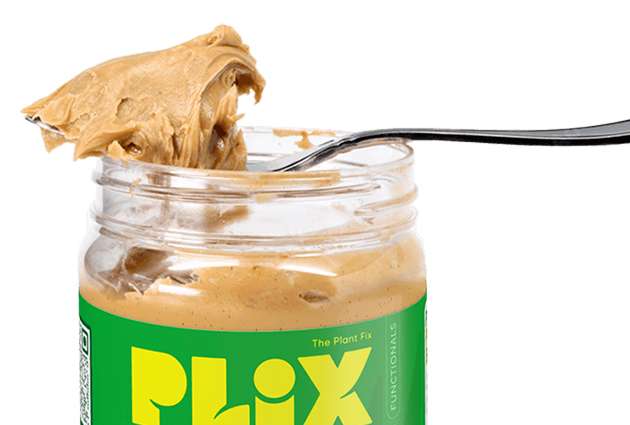Long term Effects of Protein Deficiency

Did you know that the human body is 16% protein?
Protein is one of the three macronutrients that you need to function optimally. The other two are carbohydrates and fats.
However, we rarely consume enough protein. That is why over the years, protein powders have become so popular that now we have amazing plant-based protein powders, vegan protein powders, nutritional protein powders and even organic protein powders. Want to know about some of the best protein powders available today? Read until the end.
Now, what exactly does protein do inside the body?
Protein contributes to pretty much all your essential bodily functions!
- It forms the structure of the body – blood, tissue, bone, muscle, cartilage, hormones, and enzymes.
- It helps in the building, maintaining, and repairing of the body’s tissues.
- It provides your body with the fuel it needs for your daily activities.
If protein plays such an important role, what happens to your body when you don’t get enough of it?
Suppose you don’t consume adequate amounts of protein in your meals for a few days. You will experience weakness and low energy. You’ll find yourself getting more food cravings than usual. It will even hinder your workouts and you may feel extremely tired after hitting the gym.
But what happens if this goes on for a long time?
In this blog, learn about the signs you need to watch out for if you have been consuming insufficient amounts of protein for a long time.
Here are some of the long-term effects of protein deficiency.

1. Losing muscle and strength
Let’s look at how strength is built.
When you exercise, your tissues sustain damage. These are then repaired by amino acid chains found in protein. This increases strength and leads to muscle growth.
When your body doesn’t get enough protein, it cannot support muscle recovery. It may even start pulling protein from your remaining muscle mass to fulfil other vital functions in the long run.
Long-term deficiency of protein can lead to weakness and muscle loss.
2. Excessive weight gain
Protein plays a significant part in maintaining healthy body weight.
Compared to other macronutrients, protein takes a longer time to get digested and absorbed by the body. It also triggers hormones that make you feel full and reduces the effect of hunger hormones that cause cravings.
So what happens when you’re not getting enough protein from your food?
When you’re deficient in protein, you might overeat to feel full. You may also experience food cravings more frequently. This leads to reaching for high-calorie comfort foods as a quick fix to your hunger pangs.
Lack of protein also lowers your metabolism due to low muscle mass.
In the long run, protein deficiency in your food intake can result in chronic weight gain.
3. Your wounds heal slowly
When you get injured, your skin, muscle, tissue, and bone might be affected.
Protein is essential for calcium absorption in the body, contributing to healthy bones. When tissue or muscle gets damaged, the amino acids found in protein rush in to make repairs. They also form collagen, which makes up a large part of your connective tissue – collagen is found in the skin, bones, joints, cartilage, etc.
When you don’t consume protein adequately for a long time, your body’s repair mechanisms get hindered.
As your collagen levels deplete and you don’t have enough amino acids to support recovery, your wounds take a long time to heal.
If your body is severely deficient in protein, the healing may not even be complete.
4. Poor mental health
The amino acids that form protein also help synthesize hormones. Without sufficient protein, your brain cannot produce hormones like dopamine and serotonin that are responsible for you feeling happy and positive.
This can lead to you being in a bad mood and eventually result in a steep decline in your mental health. Long term absence of dopamine also affects your cognitive abilities. You may find yourself losing focus, concentration, and memory.
Together, these factors can increase your chances of developing anxiety, depression, addiction, and more severe conditions like ADHD, schizophrenia, etc.

5. Skin, hair, and nail problems
Like most of your body, your skin, hair, and nails are also made up of protein.
The hair and nails are made of keratin, a fibrous protein. Your skin is 80% collagen, the strength and structure-building protein in your connective tissue.
In the state of protein deficiency, your body starts using the little protein it gets for essential functions, and your outer appearance takes a toll.
This will be noticeable as:
Dry, flaky, and reddish skin
Signs of premature ageing – Wrinkles, lines, and sagging skin.
Dry and brittle nails that break easily
Weak and limp hair
Hair thinning and hair fall
How can I avoid protein deficiency?
For optimum mental and physical health, your diet should be able to fulfil all your protein requirements.
The average person needs 50-60gms of protein every day. If you lift weights in the gym, you might need more according to your training.
You can satisfy your protein requirements in two ways:
Include protein-rich food in your diet
Animal-based foods are considered complete sources of protein. This includes chicken, eggs, fish, dairy, and meat. On the other hand, plant-based protein sources are easy to digest and full of fibre and antioxidants. The most popular plant proteins are soy, brown rice, hemp, and pea protein.
Use plant-based protein supplements.
Vegan protein powders are an easy and convenient way to top your daily protein needs. They get absorbed quickly and are widely available in the market.
The Strength 25g Plant Protein Powder by Plix is ideal for post-workout recovery so that you have plenty of fuel for muscle building. EVOLVE Performance Plant Protein is another vegan protein powder that helps you build strength and boost immunity in the long term. Head over to Plix Life for protein supplements that will support your health and help you match your goals!














